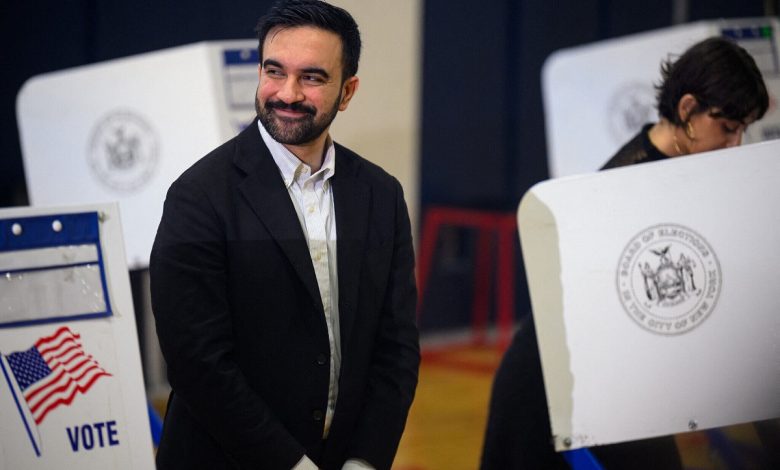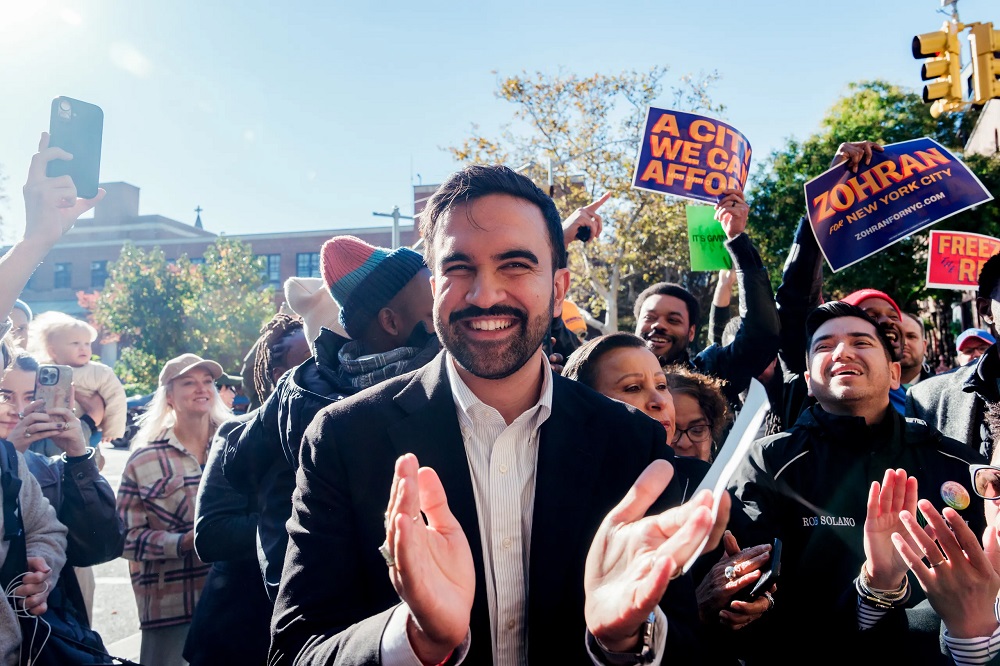Zahran Mamdani’s Victory Reshapes New York’s Jewish Political Landscape
The election of Muslim socialist Zahran Mamdani as New York’s mayor exposes a widening rift between progressive and traditional Jewish voters, signaling a new era in the city’s political dynamics.

The victory of Democratic candidate Zahran Mamdani in New York’s mayoral race has revealed a widening divide between traditional Jewish Democratic voters and younger progressives — a development that could reshape the city’s political landscape for years, according to Reuters.
Mamdani, a 34-year-old Democratic Socialist, easily defeated Andrew Cuomo, the former Democratic governor of New York who ran as an independent, overcoming accusations of anti-Semitism due to his outspoken support for Palestinians during the Gaza war.
Shifting Attitudes
Mamdani, a Muslim immigrant and progressive Democrat, capitalized on widespread anger over Israel’s war on Gaza among Democrats and segments of the Jewish-American community who initially supported Israel but later changed their stance. This shift became visible during last year’s protests at Columbia University, which Mamdani publicly supported and politically benefited from.
A Pew Research Center poll showed that only half of American Jews under 35 said Israel’s conduct in the war was acceptable, compared to 68% of Jews aged 50 and older.
In New York, about one-third of Jewish voters supported Mamdani in last Tuesday’s election — a surprising outcome that unsettled many of his Jewish opponents who had not expected such crossover backing.

The “Mamdani Watch”
Following Mamdani’s victory, the Anti-Defamation League (ADL) launched what it called the “Mamdani Watch,” a monitoring initiative aimed at tracking his policies and appointments, claiming they could “harm the Jewish community.”
Hindy Popko, vice president of the Jewish Federation of New York, said:“The morning after the election, many in our community woke up anxious. There’s a lot of uncertainty about how Mamdani will act once in office.”
Mamdani faced his first test almost immediately after anti-Semitic graffiti appeared on a Jewish day school in Brooklyn hours after his election. He swiftly condemned the act on X (formerly Twitter), writing:“As mayor, I will always stand firmly with our Jewish neighbors to root out the scourge of anti-Semitism from our city.”
Critics had earlier expressed concern over his refusal to denounce the slogan “Globalize the Intifada,” which he said he would discourage others from using, according to The New York Times. Mamdani has also expressed support for the BDS movement (Boycott, Divestment, Sanctions), which promotes economic and cultural boycotts of Israel.
A Diverse Jewish Electorate
Rising living costs in New York were central to Mamdani’s campaign and helped galvanize progressive youth support. Even some of his critics acknowledged his disciplined focus on economic issues.
Jewish supporters of Mamdani argue that the election demonstrates the diversity within the Jewish vote.
Roni Zahavi Brunner, a 26-year-old Israeli volunteer on Mamdani’s campaign, said:“I support Mamdani because of his stance on Israel and Palestine. Condemning genocide shouldn’t be controversial.”
Others rallied around Cuomo for his pro-Israel stance. Alison Devlin, a 50-year-old Jewish New Yorker, said:“I feel frustrated and anxious as a Jewish Zionist. This result worries me.”

“Give Him a Chance”
Meanwhile, Corinne Greenblatt, a 27-year-old higher education professional, praised Mamdani’s approach:“He genuinely reached out to a wide spectrum of the Jewish community, not just those who share his politics. The Jewish community is incredibly diverse.”
Greenblatt added that the Gaza war has caused “a seismic shift in Jewish politics,” making clear that there are Jews who support Palestine, Jews who support Israel, and Jews who feel no connection to either.
Rabbi Andrew Kahn of Brooklyn commented:“Mamdani has repeatedly affirmed his commitment to fighting anti-Semitism. Let’s give him a chance to prove it and work together to build bridges of solidarity that ensure safety for all New Yorkers.”



